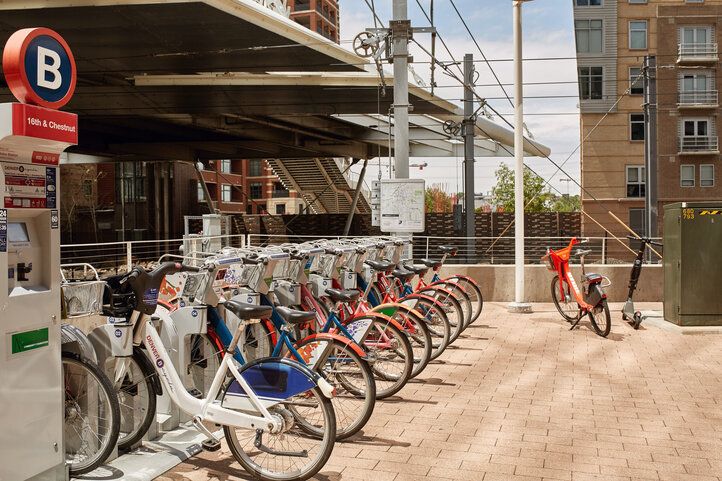A release of more than US$600,000 in state grant funding will give communities across Colorado more tools to reduce traffic congestion and offer their residents travel choices beyond driving in a car alone.
The grant awards, to be administered by the Colorado Department of Transportation’s Office of Innovative Mobility, are aimed at helping communities strengthen their “transportation demand management” efforts.
Increasingly being adopted by cities and states, transportation demand management is the use of strategies to provide travelers with more travel choices than simply single-occupant vehicle driving. These choices can include mode, route and time of travel and work location. Providing these choices doesn’t just reduce congestion and emissions; it also increases trip reliability.
Common transportation demand management strategies focus on transit, micromobility such as bikes and scooters, improvements to pedestrian infrastructure, smart growth policies, intelligent transportation systems, managed lanes, and the encouragement of e-work options.
These approaches are used most often in large urban areas, but many smaller communities can benefit from them, and Colorado’s Polis Administration has been awarding grants the last several years to cities, towns, and organizations across the state.
The grants, which total US$617,400, will go to 12 programs across the state. They include:
- US$50,000 to the Auraria Higher Education Center for a pilot program to promote sustainable and equitable commuting for students using an app that examines commuting behaviors. The hope is that the program could be a model for communities and other educational institutions across the state.
- US$50,000 to the City of Denver to allow the city’s shared micromobility program, which now provides a bike- and scooter-share system, to thoughtfully scale up. Denver’s program already has good metrics showing it has decreased single occupancy driving.
- US$38,400 to the City of Durango to help it improve its transportation demand management software and to help it launch the city’s first-ever e-bike rebate program.
- US$50,000 to the City of Fort Collins for a pilot project to subsidize carpool and vanpool programs for first- and last-mile travel.
- US$50,000 to the City of Fort Collins to help it develop a web-based or app-based portal to allow paratransit clients to schedule their own trips and receive real-time information on vehicles.
- US$30,000 to the “I Have a Dream” Foundation for RTD passes and passenger van service for disadvantaged youths to provide them safe and reliable transportation to after school programs, internships and mental health services.
- US$50,000 to Commuting Solutions to develop a transportation demand management ordinance in partnership with local government staff from Boulder, Boulder County, Louisville, Superior, Broomfield, Westminster, Lafayette, Erie and Longmont. The ordinance will focus on cross-regional transportation demand solutions in addition to other issues.
- US$49,000 to the I-70 coalition to expand access to website and video resources to Spanish-speaking audiences in addition to new educational resources in English. The grant will also create a new webpage in Spanish with similar information.
- US$50,000 to Northeast Transportation Connections to fund bike lockers for RTD’s Central Park Station.
- US$50,000 to Summit County and various partners for a micro transit feasibility study to provide first- and last-mile service to transit-dependent and disadvantaged communities. This study builds on years of work between partners to target the most successful options for the least served communities.
- US$50,000 to the Town of Vail for the expansion of an electric bike share program. The expansion will target further underserved communities to the west and bolster an already successful program.
- US$100,000 to the North Front Range Metropolitan Planning Organization for the development of a transportation management organization on the US 34 Corridor.





